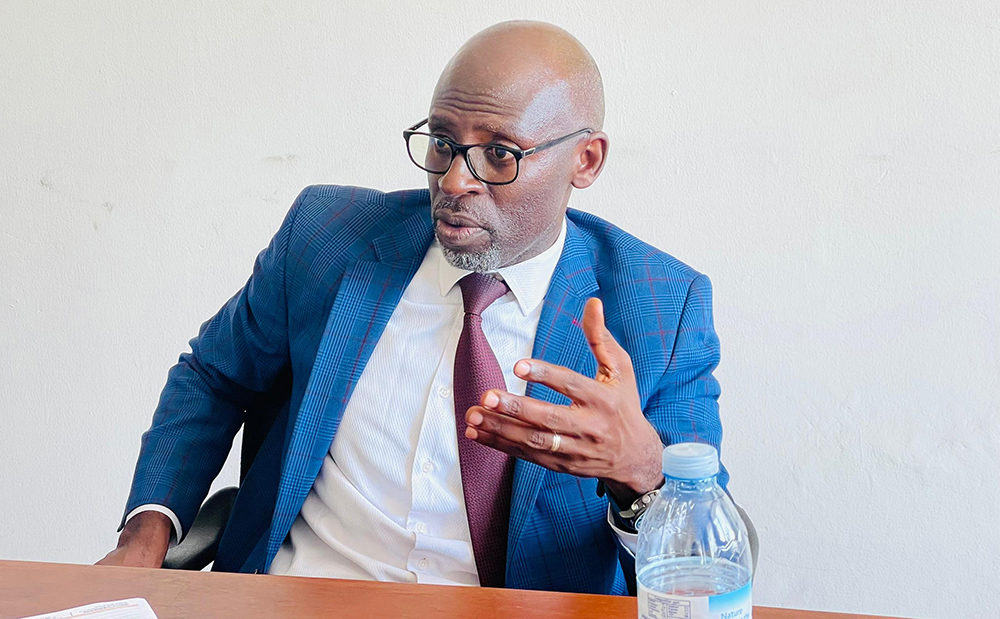Govt directs local governments on contracts below sh10m
With unemployment and underemployment disproportionately affecting young people and women, officials argue that enforcing the sh10 million threshold could inject much-needed income and entrepreneurship opportunities at the grassroots.
Musinguzi (L) explained that the Government recently harmonised procurement under a single law, replacing multiple fragmented frameworks, to improve efficiency, transparency, and equity across both central and local government entities.
The Government has reasserted that all local government contracts whose worth is below shillings 10 million must exclusively be awarded to women, youth and persons with disabilities (PWDs).
The Government describes the requirement as both a legal obligation and a key strategy to reduce unemployment among vulnerable groups.
The directive was reiterated on November 19, 2025, as a team from the local government ministry (MoLG), led by Johnson Musinguzi, the Assistant Commissioner for Procurement Inspection, held engagement meetings with accounting officers, procurement officials, contracts committees, and community development officers in Masaka district and Mbarara City.
The meetings were aimed at strengthening the enforcement of the reservation scheme.
Musinguzi explained that the Government recently harmonised procurement under a single law, replacing multiple fragmented frameworks, to improve efficiency, transparency, and equity across both central and local government entities.
He said the reservation scheme was introduced to ensure that special interest groups directly benefit from public procurement, which is one of the biggest channels of government spending and a potential engine for community-level economic transformation.
“These contracts are not optional. Any contract below shillings 10 million must be reserved for youth, women, and persons with disabilities,” he said, warning that non-compliance undermines government efforts to improve livelihoods and promote inclusive development.
Johnson Musinguzi, the Assistant Commissioner for Procurement Inspection.
Slow implementation
Although the 15% reservation scheme has been in place for years, implementation at the local government level remains inconsistent. Many districts continue to award small-value contracts to established contractors—locking out the very groups the policy is meant to empower.
Government views these small contracts as vital entry points for youth- and women-led enterprises, especially in areas such as supply of materials, routine maintenance, cleaning, catering, and simple works.
With unemployment and underemployment disproportionately affecting young people and women, officials argue that enforcing the sh10 million threshold could inject much-needed income and entrepreneurship opportunities at the grassroots.
However, gaps persist. Many local governments lack updated registers of eligible groups, while some special interest groups struggle with documentation and compliance requirements—challenges Musinguzi said must be addressed urgently.
He urged local governments to reduce paperwork barriers, support groups to organise and register, and ensure procurement opportunities reach the communities that need them most. He also stressed the need for timely payments, warning that delayed funds discourage new entrants.
“Procurement can be a tool for transformation—but only if we actively include the people it is meant to uplift,” Musinguzi said.